Resources
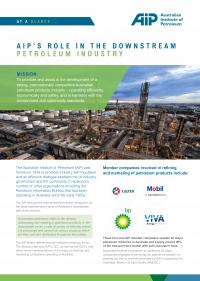
Date
Description
The Australian Institute of Petroleum (AIP) was formed in 1976 to promote industry self-regulation and an effective dialogue between the oil industry, government and the community. It replaced a number of other organisations including the Petroleum Information Bureau that had been operating in…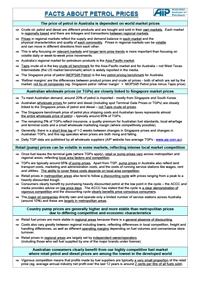
Date
Description
The price of petrol in Australia is dependent on world market prices Crude oil, petrol and diesel are bought and sold in their own markets. Each market is regionally based and there are linkages and transactions between regional markets. Prices in regional markets reflect the supply and…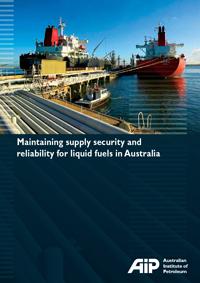
Date
Description
AIP has produced a new publication – Maintaining Supply Security and Reliability for Liquid Fuels in Australia – which provides a factual overview of the liquid fuels market and supply chain in Australia. It also details the key factors influencing the secure and reliable supply of liquid fuels to…Date
Description
There is an extensive range of Federal, State/Territory and Local government regulations and legislation applying to refineries and businesses operating in the downstream petroleum industry. Some of the key regulations are outlined below. Formal Price Monitoring On 17 December 2007, under…Date
Description
The NOSEC is a committee of the Ministerial Council on Energy (MCE) and provides the main executive channel through which Commonwealth and State Governments formulate their overall management response to a national liquid fuel emergency. The task of the NOSEC is to ensure that the Federal…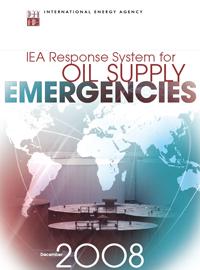
Date
Description
The International Energy Agency (IEA) is the energy forum for 28 industrialised countries, founded in 1974 (see www.aip.com.au/pricing/iea.htm). IEA member country governments are committed to taking joint measures to meet oil supply emergencies. They also have agreed to share energy information,…Date
Description
Subsidising domestic alternative fuel production is not necessary for energy security The reliable supply of conventional transport fuels (petrol, diesel and jet fuel) to the Australian market is underpinned by a diversity of supply options for petroleum products from domestic refiners and…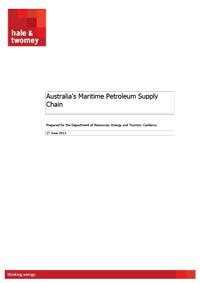
Date
Description
In 2013, Hale and Twomey was engaged by the Federal Department of Resources, Energy and Tourism (DRET) to examine and report on the maritime supply chain and the key role it plays in Australia's petroleum supply chain. The report considers how the maritime supply chain operates for Australia and…Date
Description
AIP has produced a set of basic facts on biofuels in Australia to inform consumers, commentators and other interested parties. AIP has consistently stated that there is a sustainable role for biofuels in the Australian fuels market provided biofuels are competitively priced, have a reliable supply…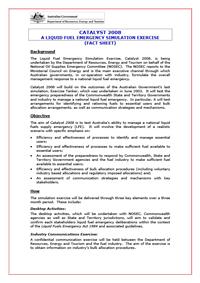
Date
Description
In 2008, the Department of Resources, Energy and Tourism (DRET), on behalf of NOSEC, undertook a Liquid Fuel Emergency Simulation Exercise – 'Catalyst 2008'. The aim of 'Catalyst 2008' was to test the emergency preparedness of the Commonwealth State and Territory Governments and industry to manage…